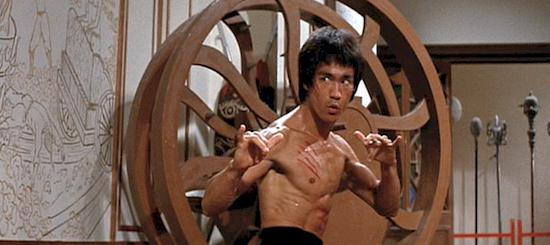The Jeet Kune Do Of Continuous Improvement

Famed martial artist, Bruce Lee pioneered a martial arts philosophy coined “Jeet Kune Do”. During his years of perfecting his martial arts skills he recognized the strengths and limitations of the many traditional martial arts disciplines (Karate, Tae Kwon Do, Kung Fu, Boxing etc.). He believed the purist mentality of each of the disciplines detracted from optimizing the martial artist. For example, Tae Kwon Do, a Korean Martial art is known for its flashy kicks aimed at an opponent’s head. In adopting aspects of Tae Kwon Do, Lee concluded that this particular aspect was about as useful as punching an opponent in the foot. Thus, he developed a style, continuously evolving, which drew upon them all, which he frequently referred to as “a style without a style”. The Buddhist metaphor Lee cited was of constantly filling a cup with water, and then emptying it, describing his philosophy of “casting off what is useless”. The JKD philosophy embraces drawing on different techniques and adopting those that best fit the martial artist. In Lee’s mind JKD was a philosophy and a journey of never ending improvement.
Like JKD, in business, the notion of continuous improvement is a philosophy, a journey and not a destination. The concept of continuous improvement was born from many valid scientific management practices that evolved Post WWII. Over the years many programs were introduced such as Total Quality Management (TQM) and Just in Time Manufacturing(JIT) and became buzz words in business lexicon. Many companies attempted to introduce the fad de jour with limited success. Many attribute these unsuccessful efforts to senior management focusing on programs versus “culture” or “philosophy”. In many instances, where these programs failed to deliver the intended result, either leadership changed or a new fad came on the scene promising to deliver better results than the last. Over the years I have read the annual reports of those successful organizations, such as Danaher, which truly embraced the culture and philosophy which resulted in significant free cash flow generation, an attribute particularly important to investors such as MCM Capital Partners, a Cleveland based small-cap private equity fund.
During the past week, I had a bit of airplane travel time which allowed me to read an excellent book titled Velocity. Like JKD, Velocity, authored by Dee Jacob, Susan Bergland, and Jeff Cox (coauthor of The Goal) focuses on the integration of the disciplines of Theory of Constraints (TOC), Lean Manufacturing and Six Sigma as a holistic toolbox to maximize corporate performance. At MCM, we encourage our portfolio companies to integrate and adopt the disciplines that best fit their particular business.
As an example, Primary Packaging Inc., an MCM portfolio company acquired through a leveraged recapitalization, has embraced continuous improvement. Historically, PPI’s culture leveraged TOC using it as a competitive weapon delivering the shortest lead times for custom packaging in the industry. Most recently, the company applied the lean principle of single minute exchange of die (SMED) with the goal of increasing effective press speed by 100%. Because of the short run custom nature of its business, management recognized that approximately 50% or more of a job’s run time was in set up, not production. Through video studies, management analyzed the activities of the department employees with the goal of reducing set up time. The conclusion was (i) to reorganize and improve the location and availability tools and equipment necessary for a set up and (ii) to externalize as much of the set up process as possible so the preparation for the set up was being accomplished while the presses were running. The focusing factor of TOC, with the print department as the constraint, provided for the intelligent deployment of a lean initiative that would further improve service levels and drive greater plant throughput and EBITDA. By following this discipline, PPI is able to achieve inventory turnover of 12 to 14 times per year, with WIP and finished goods inventory levels being measured in days.
Like JKD practitioners, most of MCM’s current and former portfolio companies possess a culture of continuous improvement and have developed systems, tailored to meet their specific needs, which borrow from Lean, Six Sigma and TOC. While each business is different, the bottom line is that through adoption of the disciplines, most of these business have been able generate exceptional cash flow by using lead times, speed of delivery and flexibility to exact competitive advantage. The most successful continuous improvement initiatives have been delivered by applying those levers to the important few versus the trivial many. In essence, in Bruce Lee’s terminology, filling the cup with water, and then emptying it, focusing on what is useful and casting off what is useless.
For more information on our private equity firm and investment principles, contact us today.

